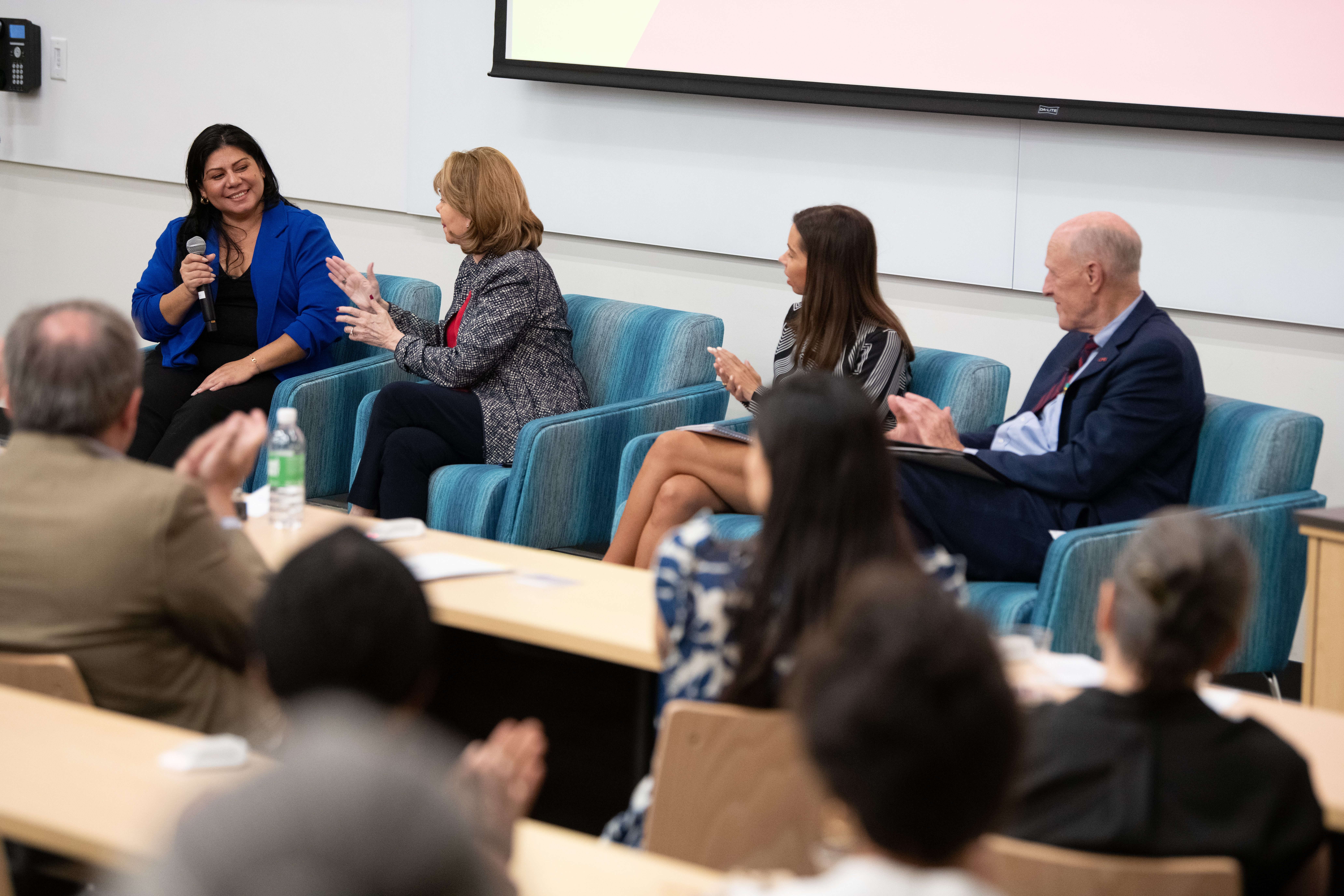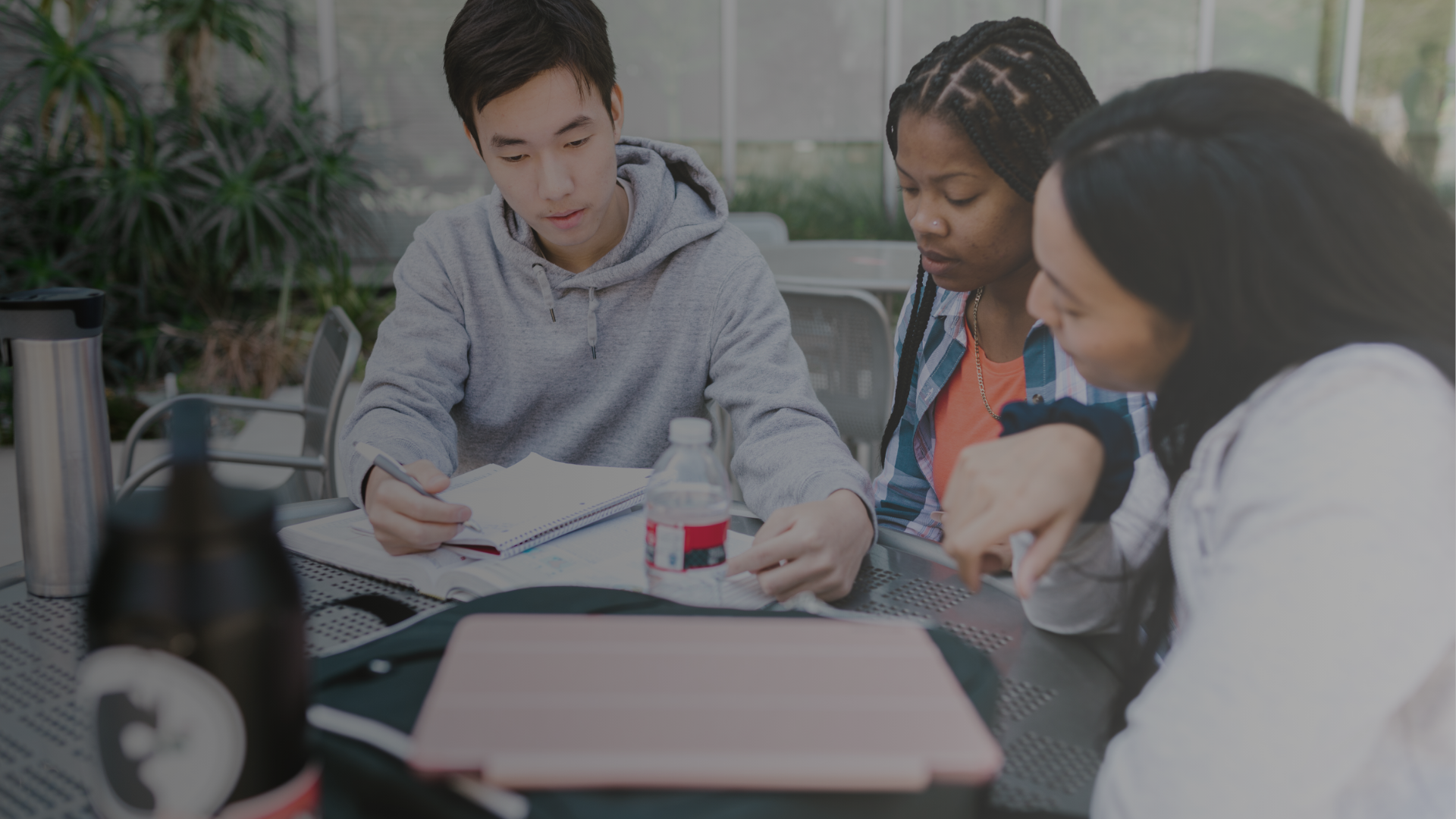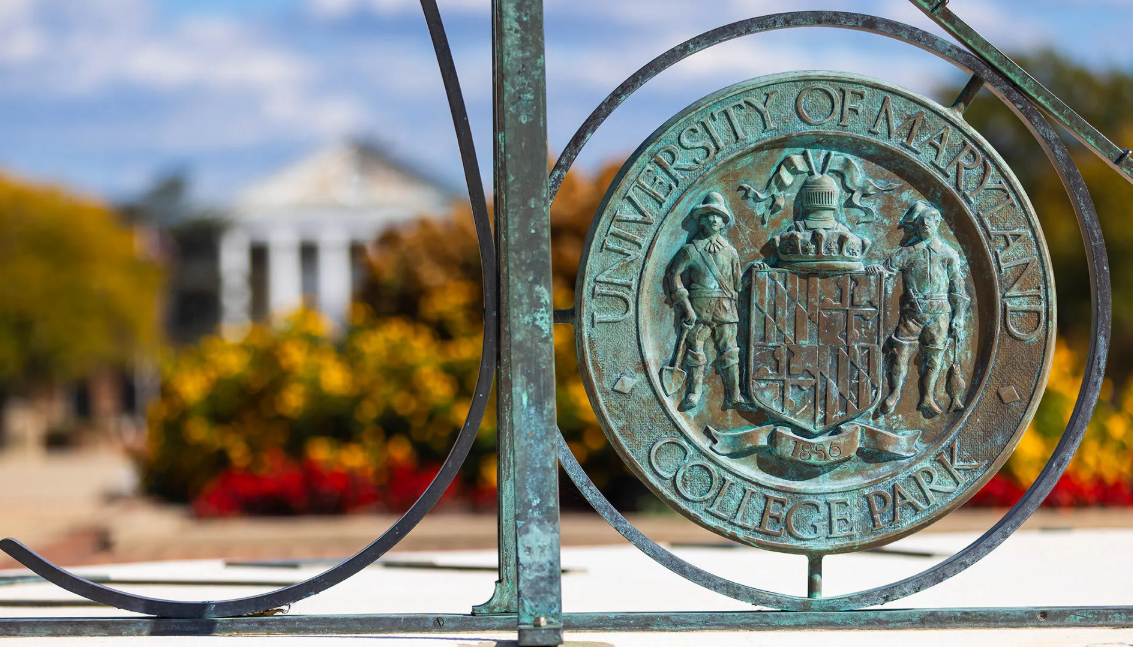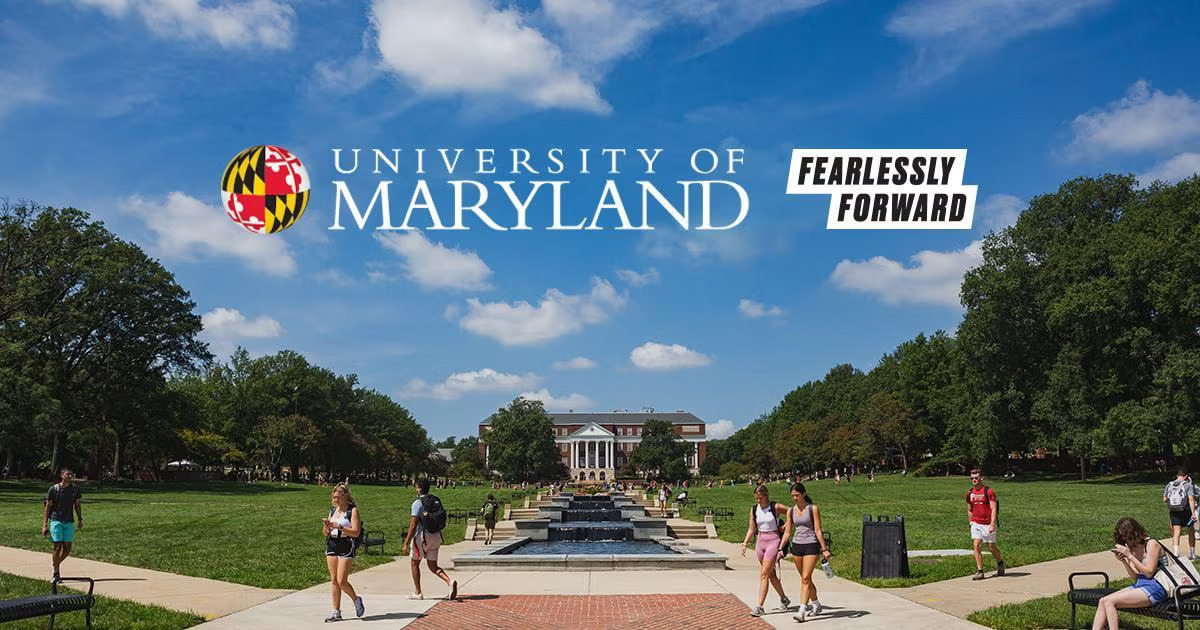Creating A Path For Human Trafficking Survivors
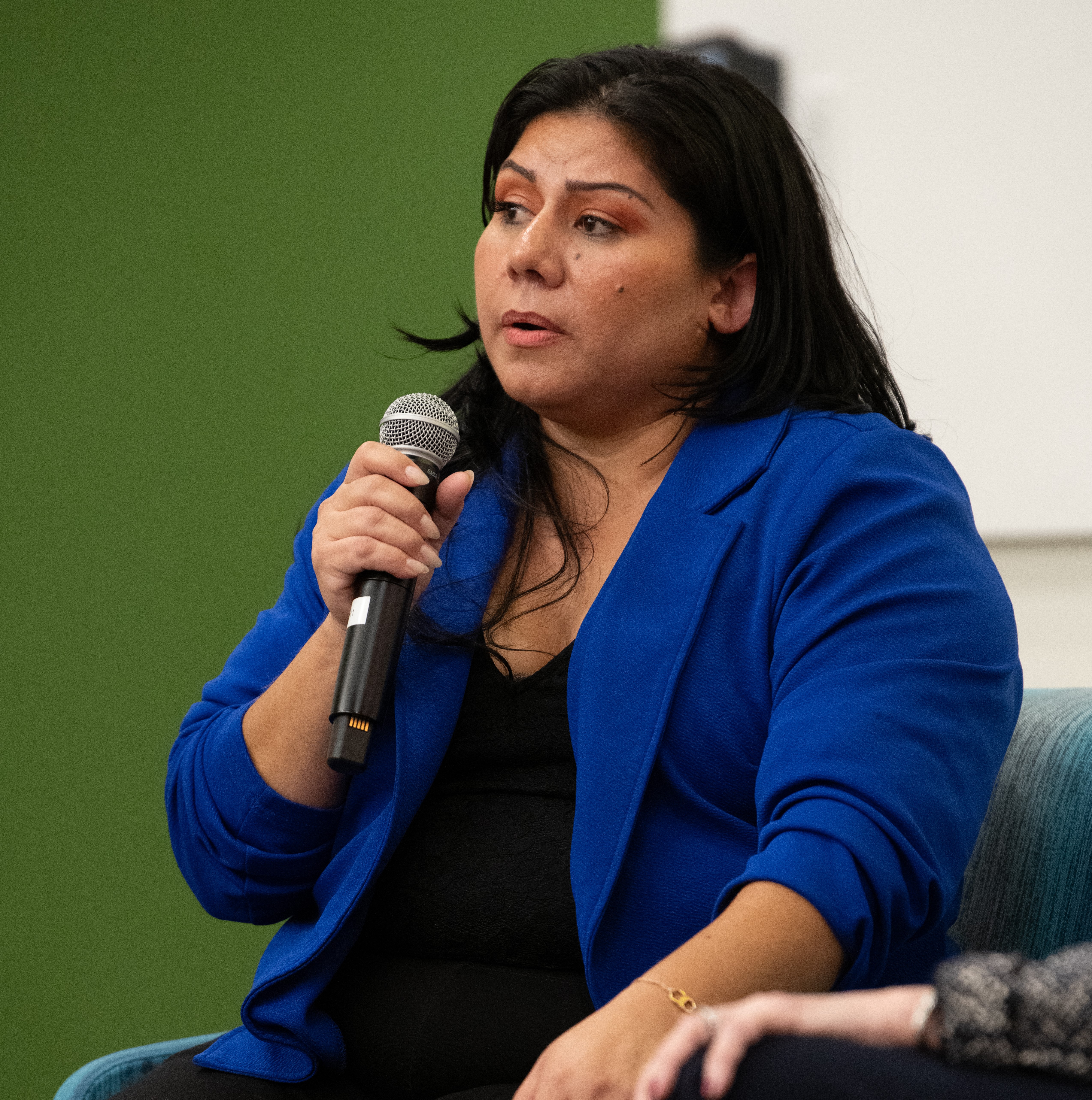
Published in UMB News, Adapted for MPower website | October 6, 2025
“I am the proved example that you can overcome everything in life. And I will say that I’m so thankful and that SAFE Center saved my life.”
The woman who spoke those words is Olga, a survivor of human trafficking in Maryland and one of more than 500 survivors served since the 2016 founding of the University of Maryland SAFE (Support, Advocacy, Freedom, and Empowerment) Center for Human Trafficking Survivors.
Participants in a forum at the Universities at Shady Grove September 30 heard firsthand about the Center’s success in combatting human trafficking and preparing a pathway for survivors to reclaim their lives.
“A family member sells a victim into sexual servitude and forced marriage. Perpetrators traffic clients for sex up and down the I-95 corridor. A pimp posing as a boyfriend sells a teen for sex and then controls her by hooking her on heroin. High-ranking diplomats hold their domestic workers captive, isolated, forcing them to work long, grueling hours with little or no pay, and denying them crucial medical care.” These are some of the all-too-common ways human trafficking is perpetrated in Maryland, according to Susan G. Esserman, JD, founder and director of the SAFE Center.
University of Maryland, Baltimore (UMB) President Bruce E. Jarrell, MD, FACS, led the discussion with Esserman and two other panelists before an audience of alumni from four of UMB’s professional schools gathered at the Universities at Shady Grove.
“The whole idea of it (the SAFE Center) was a one-stop shop to prevent survivors who are suffering from trauma from having to navigate services all over the region,” Esserman explained. “So, we provide at the Center legal, social services, mental health, crisis intervention, economic empowerment services, and with the support of the university, dental services and basic medical. Our multidisciplinary team of lawyers, social workers, mental health clinicians, and housing and workforce experts meet regularly on a client’s case to prioritize the highest need for the survivor and his sequence services.”
Created in 2016 as a partnership between UMB and the University of Maryland, College Park (UMCP), the SAFE Center is the first systematic, university-based program serving victims of human trafficking with comprehensive legal, social, economic, mental health, and medical services. The Center operates under the aegis of University of Maryland Strategic Partnership: MPowering the State, the formal collaboration between the two universities, and has worked with 12 different university programs (six at UMB and six at UMCP), drawing on a depth of clinical and educational resources.
In 2018, the SAFE Center began talks with a powerful new partner, Marriott International.
“We recognize that the hospitality industry is vulnerable to the issue, as traffickers use hotel rooms to exploit their victims,” said Abbe Horswill, Director of Human Rights for Marriott International. At the same time, Horswill explained, Marriott is also positioned perfectly to provide pathways to economic freedom. “The industry is great for entry-level roles that really don’t require formal education or work experience,” she told the audience, adding that Marriott has a long history of “providing workforce development and job trainings for people who want to pursue careers in the hospitality industry.”
Although full implementation of a new job and skills training program was delayed by the COVID-19 pandemic, Marriott and the SAFE Center were able to launch in 2022, along with three more Marriott centers in New York, Dallas, and Charlotte. With the help of additional funding from the American Hotel and Lodging Association Foundation’s “No Room for Trafficking Survivor Fund” the program has trained over 500 survivors to date.
One of those survivors is Olga and her story riveted the audience in Shady Grove.
“As a victim, like everybody calls us that, I don’t feel like that anymore because I feel like I have people with me, actually,” Olga reflected. “I’ve been working with SAFE Center for about five years now and I feel that these programs are necessary for our society.”
Olga smiled as she recounted the many training and education programs she’s participated in at the SAFE Center. “First of all, I’m Latina, so I didn’t know English at all,” she began. I’ve been through all the programs in the SAFE Center. I was with the program teaching classes, like English class. I was in economic empowerment. I also was able to learn financial and economical skills.”
Along the way, she also learned the skill she says was most empowering: solving problems. Now, Olga works for United Airlines as a customer service representative. She says there are lots of “situations,” but she’s not fazed. “I learned how to solve problems, how to communicate, how to just find a way to make a difference and create a positive experience for others.”
“Yeah, I think that from not having hope, I’m full of hope now. I am expecting so much from life, and it is because your people and God. I just would say, thank you.”
To learn more about the SAFE Center and watch a video about Olga‘s story, please visit their website.

